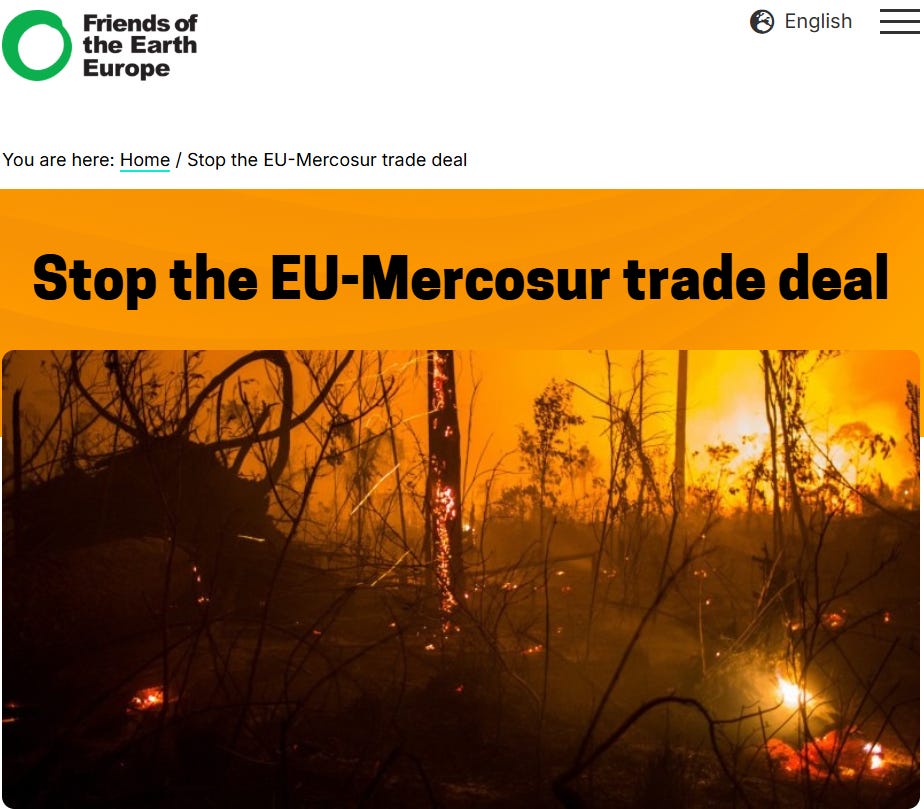Secret EU Funding of NGOs to Attack Industry and Free Trade
A Recent Welt am Sonntag Investigation Reveals Agreements to Fund Activist Campaigns to Interfere with Business Operations
This weekend, the German newspaper, Welt am Sonntag, published research revealing how the European Commission has been paying environmental NGOs to attack companies and industries, funding everything from lawsuits against coal-fired power plants to campaigns against free trade.
The article entitled “Secret Contracts – EU Commission Paid Activists for Climate Lobbying”, written by Stefan Beutelsbacher and Axel Bojanowski, looked at cases of European Commission funding secretly paid to environmental organizations for lawsuits and campaigns against German companies. But according to an investigation published earlier this year in the Dutch newspaper, the Telegraaf, it is evident that this dark funding has been happening across Europe.
The Welt am Sonntag had seen confidential documents where Brussels officials and activists coordinated with each other down to the finest detail to promote the EU's climate policy. Quoting the newspaper (translated by The Firebreak), some examples include:
The non-governmental organization (NGO) ClientEarth, for example, received €350,000 and was tasked with entangling German coal-fired power plants in court cases in order to increase the operators' "financial and legal risk." Commission officials commissioned Friends of the Earth to fight against the Mercosur free trade agreement between Europe and South America – even though colleagues in their own offices were simultaneously pushing it forward. Other groups received money to influence EU parliamentarians before votes on pesticides and chemicals.
The contracts date back to 2022, and the funds were paid out in 2023. Individual NGOs received up to €700,000.
This funding was made available to the NGOs via the European Commission Life+ Programme. The financing tool provides €15 million annually in EU taxpayer funding to NGOs operating at the EU level to support them in their campaigning, lobbying and issue management.

The German CSU MEP, Monika Hohlmeier, told Welt am Sonntag:
"I was particularly shocked by the subversive plans to force everything from farms to coal-fired power plants to abandon their economic activities through lawsuits and the massive tightening of documentation requirements. It is worrying that the Commission's inspectors did not use the dubious work programs as a reason to refuse funding."
The investigation claims that the contracts between the Commission and the NGOs are “surprisingly specific. EU officials spell out exactly what they expect from activists in return for the funding – such as a certain number of lobby letters, social media posts, and meetings with members of the European Parliament.”
CDU politician Markus Pieper, himself a victim of relentless personal attacks by EU-funded NGOs, told the Welt am Sonntag that the funding of these NGOs is: "a clear violation of the principle of separation of powers."
There are more voices beginning to speak out about such cases of dark NGO funding. "Citizens are left with the impression that the Commission is only using taxpayer money to promote opinions that are favorable to them," Svenja Hahn, deputy federal chair of the FDP and MEP, told the Welt am Sonntag. "This massively damages trust in the European institutions."
Other stakeholder groups also criticized these secret agreements between the European Commission and activist NGOs. Oliver Luksic, from the Transparent Democracy Initiative, told the Welt am Sonntag that "NGOs at the European level must ensure full transparency in their funding, especially when they engage in state-sponsored political opinion-forming. Otherwise, the suspicion arises that non-profit concerns such as environmental protection are not the priority." The Transparent Democracy Initiative investigates and publishes information on the financial flows to activist groups, political parties and lobby organizations. See the recent Firebreak article on the launch of this transparency organization.
The Welt am Sonntag investigation claimed that the European Commission has remained largely silent on the subject.
Sadly, this incoherent and non-transparent funding of activist campaigns is nothing new. Firebreak editor, David Zaruk, had published research almost a decade ago, on how the European Commission paid over €2 million between 2013 and 2015 to the anti-free-trade activist group, theTransnational Institute, to undermine its own then ongoing EU negotiations and public perception toward TTIP and CETA (the EU free trade negotiations with the US and Canada).
Following a series of revelations of funding transgressions, there was a study and a few hearings in the European Parliament in 2019, but the NGOs went on the offensive to defend their funding conditions, and nothing was done to provide more scrutiny and rationality to the seemingly ad hoc EU NGO funding strategy. It is becoming clear that there is no central policy or coherent strategy within the European Commission on how public funds are distributed to activist campaigns. Nor is there a will to confront this situation.
Unless the media speaks out and demands more transparency and a more accountable use of EU taxpayer funds, the European Commission would, at best, continue to look the other way, or at worst, continue to fund NGOs to lobby on their behalf by attacking free markets, industries and consumer interests.
Notes:
Welt am Sonntag is the weekend edition of Die Welt, one of the leading German and European news organizations. In both 2012 and 2013, Welt am Sonntag was named European Newspaper of the Year.
On June 12, 2025 there will be a conference in the European Parliament entitled Defending Democracy, hosted by the European Green Party, to defend the present NGO funding and transparency conditions. The conference page states: “… we need to mobilise and fight back”.
The Firebreak editor, David Zaruk, is a member of the Transparent Democracy Initiative.


